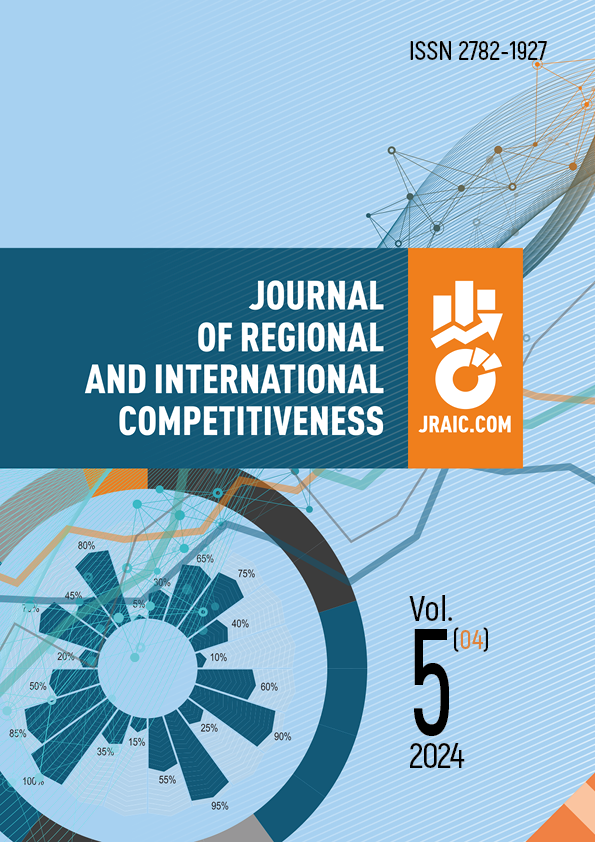Moscow, Russian Federation
Kaluga, Kaluga, Russian Federation
The article concerns with the legal and economic aspects of public administration with the use of public-private partnership for coliving development in Russia. The coliving market is actively developing in recent years in the context of increasing urbanisation and changes in the socio-economic environment. This service primarily targets at students accommodation. It also provides a range of social and cultural services attractive to students, postgraduates, young professionals. This makes it economically interesting for investors. The article analyses the prerequisites for coliving in the Russian Federation, as the shortage of affordable housing in large cities increases the demand for new models of accommodation. Therefore, coliving becomes an alternative to traditional hostels and rental housing. The purpose of this work is to assess the possibilities of using coliving in Russia within the framework of public-private partnership models. It emphasises on economic and legal aspects affecting the attractiveness of such projects for private investors and public infrastructure. According to research results, the successful implementation of coliving requires adaptive approaches to design and financing in terms of regional characteristics and the urbanisation. It makes the project economically sustainable and attractive to both private capital and the public sector. Indeed, coliving might be relevant for the governments and investors in implementing affordable housing projects for students and young professionals.
public-private partnership; concessions; coliving; dormitories; student; investment
1. Ahmadi, Z., Berggren, B., Ismail, M., & Silver, L. (2024). Profitability in public housing companies: A longitudinal and regional analysis using Swedish panel data. Real Estate, 1(1), 158-173. Retrieved from https://doi.org/10.3390/realestate1020008
2. Alshubiri, F., & Al Ani, M. K. (2024). Housing affordability indicators and the sustainability paradigm in OECD countries. Cities, 148, 104904. Retrieved from https://doi.org/10.1016/j.cities.2024.104904
3. Bakhaty, Y., Udeaja, C., & Levatti, H. U. (2024). A framework to adopt modern methods of construction in social housing projects in Egypt. Sustainability, 16(17), 7773. Retrieved from https://doi.org/10.3390/su16177773
4. Bustamante-Mora, A., Diéguez-Rebolledo, M., Hormazábal, Y., Valdés, Y., & Vidal, E. (2024). Policies, projects, and initiatives for sustainable higher education with gender equity: Literature review and case study –Universidad de La Frontera. Sustainability, 16(12), 5038. Retrieved from https://doi.org/10.3390/su16125038
5. Fell, T., & Mattsson, J. (2021). The role of public-private partnerships in housing as a potential contributor to sustainable cities and communities: A systematic review. Sustainability, 13(7783), 7783. Retrieved from https://doi.org/10.3390/su13147783
6. Feng, J., Wang, N., & Sun, G. (2022). Measurement of innovation-driven development performance of large-scale environmental protection enterprises investing in public–private partnership projects based on the hybrid method. Sustainability, 14(5096), 5096. Retrieved from https://doi.org/10.3390/su14095096
7. Levitt, R. E., Scott, W. R., & Garvin, M. J. (Eds.). (2019). Public–Private Partnerships for Infrastructure Development. Cheltenham, UK: Edward Elgar Publishing. Retrieved from https://doi.org/10.4337/9781788973182
8. McKee, K., Soaita, A. M., & Hoolachan, J. (2019). ‘Generation rent’ and the emotions of private renting: Self-worth, status and insecurity amongst low-income renters. Housing Studies, 35(8), 1468–1487. Retrieved from https://doi.org/10.1080/02673037.2019.1676400
9. Pepper, S. H., & Manji, A. (2019). Co-living as an emerging market: An assessment of co-living’s long-term resiliency. Massachusetts: Massachusetts Institute of Technology.
10. Regodon, A., Armand, M., Lastres, C., De Pedro, J., & García-Santos, A. (2021). Data-driven methodology for coliving spaces and space profiling based on post-occupancy evaluation through digital trail of users. Sustainability, 13(22), 12607. Retrieved from https://doi.org/10.3390/su132212607
11. Shi, J., Duan, K., Wen, S., & Zhang, R. (2019). Investment valuation model of public rental housing PPP project for private sector: A real option perspective. Sustainability, 11(7), 1857. Retrieved from https://doi.org/10.3390/su11071857
12. Starostin, S. A. (2016). Problems of public administration in the creation of public infrastructure. Administrativnoe pravo i process, 7, 31–33 (in Russian).
13. Uyttebrouck, C., & Teller, J. (2023). Shared housing for students and young adults and the urban-regeneration process of second-tier cities. Conference ENHR-2023. Poland: Lodz.
14. Wolniak, R., Gajdzik, B., Grebski, M., Danel, R., & Grebski, W. W. (2024). Business models used in smart cities – Theoretical approach with examples of smart cities. Smart Cities, 7(4), 1626–1669. Retrieved from https://doi.org/10.3390/smartcities7040065




















